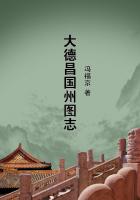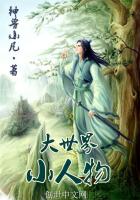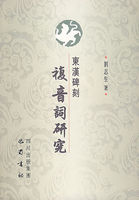PIONEERS OF THE MACHINE SHOP
There is a tinge of melancholy about the life of such a pioneer as Oliver Evans, that early American mechanic of great genius, whose story is briefly outlined in a preceding chapter.Here was a man of imagination and sensibility, as well as practical power;conferring great benefits on his countrymen, yet in chronic poverty; derided by his neighbors, robbed by his beneficiaries;his property, the fruit of his brain and toil, in the end malevolently destroyed.The lot of the man who sees far ahead of his time, and endeavors to lead his fellows in ways for which they are not prepared, has always been hard.
John Stevens, too, as we have seen, met defeat when he tried to thrust a steam railroad on a country that was not yet ready for it.His mechanical conceptions were not marked by genius equal to that of Evans, but they were still too far advanced to be popular.The career of Stevens, however, presents a remarkable contrast to that of Evans in other respects.Evans was born poor (in Delaware, 1755) and remained poor all his life.Stevens was born rich (in New York City, 1749) and remained rich all his life.Of the family of Evans nothing is known either before or after him.Stevens, on the contrary, belonged to one of the best known and most powerful families in America.His grandfather, John Stevens I, came from England in 1699 and made himself a lawyer and a great landowner.His father, John Stevens II, was a member from New Jersey of the Continental Congress and presided at the New Jersey Convention which ratified the Constitution.
John Stevens III was graduated at King's College (Columbia) in 1768.He held public offices during the Revolution.To him, perhaps more than to any other man, is due the Patent Act of 1790, for the protection of American inventors, for that law was the result of a petition which he made to Congress and which, being referred to a committee, was favorably reported.Thus we may regard John Stevens as the father of the American patent law.
John Stevens owned the old Dutch farm on the Hudson on which the city of Hoboken now stands.The place had been in possession of the Bayard family, but William Bayard, who lived there at the time of the Revolution, was a Loyalist, and his house on Castle Point was burned down and his estate confiscated.After the Revolution Stevens acquired the property.He laid it out as a town in 1804, made it his summer residence, and established there the machine shops in which he and his sons carried on their mechanical experiments.
These shops were easily the largest and bestequipped in the Union when in 1838 John Stevens died at the age of ninety.The four brothers, John Cox, Robert Livingston, James Alexander, and Edwin Augustus, worked harmoniously together."No one ever heard of any quarrel or dissension in the Stevens family.They were workmen themselves, and they were superior to their subordinates because they were better engineers and better men of business than any other folk who up to that time had undertaken the business of transportation in the United States."** Abram S.Hewitt.Quoted in Iles, "Leading American Inventors", p.37.
The youngest of these brothers, Edwin Augustus Stevens, dying in 1868, left a large part of his fortune to found the Stevens Institute of Technology, afterwards erected at Hoboken not far from the old family homestead on Castle Point.The mechanical star of the family, however, was the second brother, Robert Livingston Stevens, whose many inventions made for the great improvement of transportation both by land and water.For a quarter of a century, from 1815 to 1840, he was the foremost builder of steamboats in America, and under his hand the steamboat increased amazingly in speed and efficiency.He made great contributions to the railway.The first locomotives ran upon wooden stringers plated with strap iron.A loose end--"a snakehead" it was called--sometimes curled up and pierced through the floor of a car, causing a wreck.The solid metal T-rail, now in universal use, was designed by Stevens and was first used on the Camden and Amboy Railroad, of which he was president and his brother Edwin treasurer and manager.The swivel truck and the cow-catcher, the modern method of attaching rails to ties, the vestibule car, and many improvements in the locomotive were also first introduced on the Stevens road.
The Stevens brothers exerted their influence also on naval construction.A double invention of Robert and Edwin, the forced draft, to augment steam power and save coal, and the air-tight fireroom, which they applied to their own vessels, was afterwards adopted by all navies.Robert designed and projected an ironclad battleship, the first one in the world.This vessel, called the Stevens Battery, was begun by authority of the Government in 1842; but, owing to changes in the design and inadequate appropriations by Congress, it was never launched.It lay for many years in the basin at Hoboken an unfinished hulk.Robert died in 1856.On the outbreak of the Civil War, Edwin tried to revive the interest of the Government, but by that time the design of the Stevens Battery was obsolete, and Edwin Stevens was an old man.So the honors for the construction of the first ironclad man-of-war to fight and win a battle went to John Ericsson, that other great inventor, who built the famous Monitor for the Union Government.
Carlyle's oft-quoted term, "Captains of Industry," may fittingly be applied to the Stevens family.Strong, masterful, and farseeing, they used ideas, their own and those of others, in a large way, and were able to succeed where more timorous inventors failed.Without the stimulus of poverty they achieved success, making in their shops that combination of men and material which not only added to their own fortunes but also served the world.















